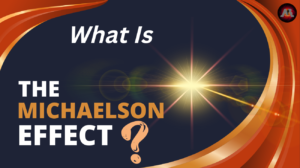In our culture, doubt is often misunderstood. It is associated with indecision, fear, or a lack of confidence. From early on, we’re taught to strive for certainty — to be sure of ourselves, our beliefs, and our path. We admire those who appear resolute and unwavering, often equating doubt with failure or fragility.
However, this perspective overlooks the deeper nature of doubt. It ignores its potential — not as an obstacle to be eliminated, but as a force to be embraced. What if doubt were not a weakness but a form of inner intelligence? What if it were not the end of conviction but the beginning of true clarity?
Doubt as a Form of Intelligence
Doubt, at its best, is not paralysis; it is curiosity. It is the internal nudge that says, “Wait — look closer.” It pushes us to examine what we’ve taken for granted, test the strength of our assumptions, and ask questions that matter.
Unlike blind certainty, which can lead to rigidity and arrogance, doubt keeps us open — to new information, other perspectives, and change. It is, in many ways, a safeguard against dogma. When we allow space for doubt, we make room for nuance, develop critical thinking, and cultivate depth.
In science, philosophy, and creativity, doubt has always been essential. The greatest breakthroughs often begin not with an answer, but with a question. A hesitation. A sense that “something isn’t quite right.”
Clarity Through Uncertainty
Paradoxically, doubt can lead to greater clarity. When we pause to reflect, reconsider, and sit in uncertainty, we are refining our understanding and sharpening our awareness.
This process can be uncomfortable; it can feel like stepping into fog and losing our footing. But it’s precisely in these moments of disorientation that we are forced to let go of superficial answers and dig deeper.
Clarity gained through doubt is more resilient than blind conviction. It is earned, tested, and capable of withstanding challenges because it was born in the fire of questioning.
Doubt as a Driver of Change
There is also a transformative dimension to doubt. When we begin to question what we’ve always believed — about the world, others, and ourselves — we open the door to change.
Sometimes it starts with a whisper: “Is this really what I want?” or “What if I’m wrong?” From there, a deeper inquiry unfolds. Doubt becomes the starting point of a shift in values, identity, or life direction. It encourages us to evolve.
Without doubt, there is no reinvention, redefinition, or liberation from outdated patterns. Doubt doesn’t destroy — it dismantles what no longer fits and gives us the raw material to rebuild.
A Quiet, Radical Strength
To doubt is not to be weak. It is to be awake. It is to resist easy answers and demand something more honest, thoughtful, and real.
In a time that often values speed over depth, performance over truth, and certainty over openness, doubt is a quiet rebellion — a radical kind of strength. It asks us to slow down, listen, and reconsider.
Perhaps, then, the real question is not “How can I get rid of doubt?” but “What is it trying to show me?”













